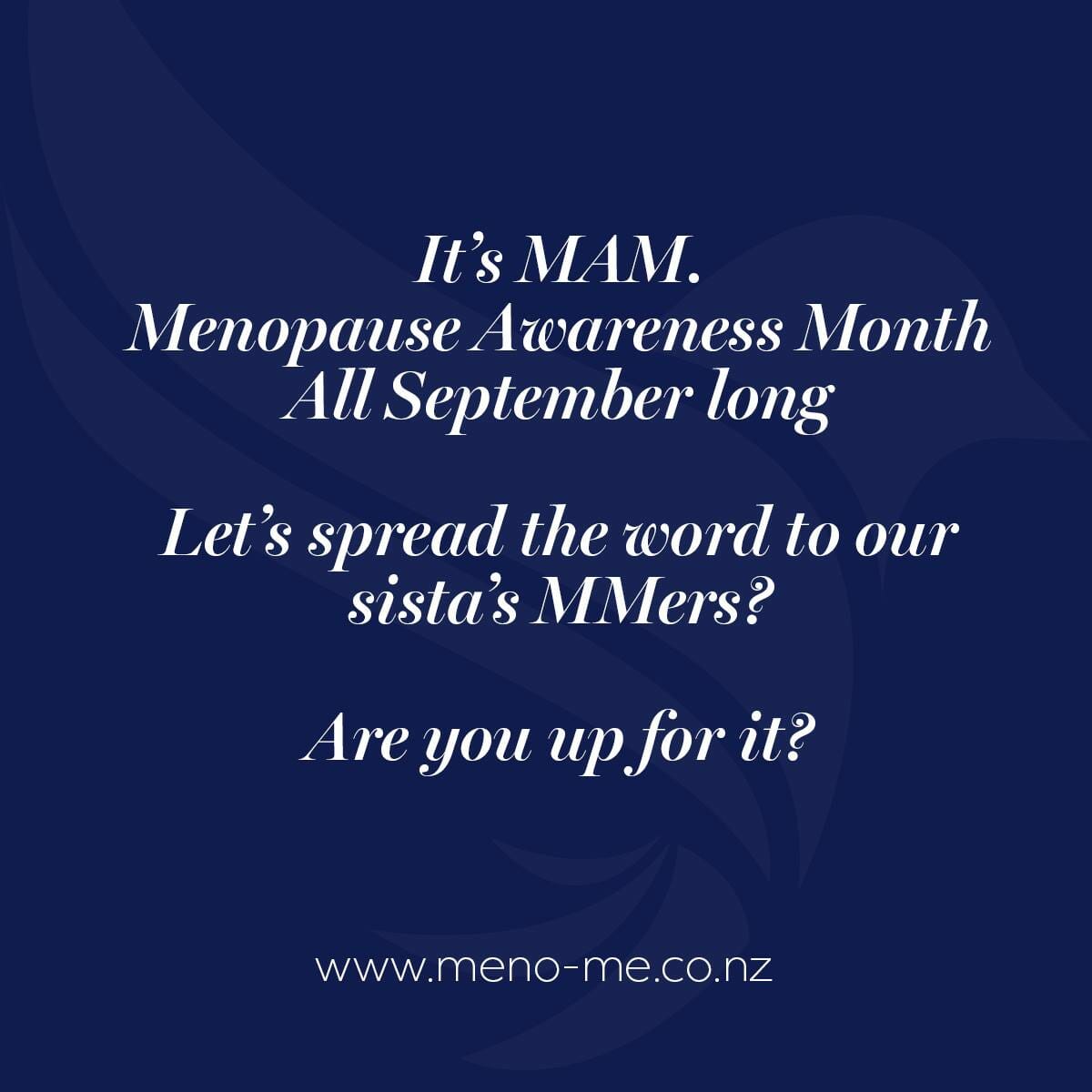You Can Win – You Lucky Lucky Things!

Menopause Awareness Month? Did you know there was such a thing?
It’s all September long and in honour of it, you are all lucky things! Why? Because you can win this gorgeous Tilly Crossbody bag in French Navy from Saben. It’s our gift to you this month in honour of MAM.

What Is Menopause Awareness Month?
It’s a month dedicated to creating awareness of peri and post-menopause often called ‘the change of life’ or the ‘midlife transition’.
The ‘Change’
The ‘change’ begins with perimenopause. This is a time when our ovaries produce less and less estrogen and progesterone as we come to the end of our fertile years. When this begins our periods become lighter, heavier, less frequent, shorter or longer. It’s also when we might experience sleep, mood, weight and body temperature issues. (Sorry! )
Perimenopause is not an illness and it’s not discriminatory. Every single woman will go through it if she lives long enough. Commonly peri begins around age 42, but it can sometimes start earlier due to a woman undergoing hysterectomy or cancer treatment. Peri leads through into post-menopause around age 51/52.
The Signs
This is a crucial issue because this transition can affect women in many different ways, not all of them pleasant. The worry is that many Meno-She’s are uneducated about this life stage. If that’s you, read some of the signs here.
Some of us experience very few of the things on that list, however, others can experience one, several or all of them (sad face). This can lead to loss of confidence for some ladies and a feeling of having lost their youth along with their sexual mojo and visibility. It might also bring on feelings of disempowerment and hopelessness.
A New Paradigm
This is why understanding is so important when meno is a bumpy ride.
We need to change the rollercoaster ride aspect by creating a new paradigm of awareness and knowledge. So let’s come together. Please come and join us in the private Facebook group 40+ Goddesses and as we grow we can all help each other. Click here to join.
At MenoMe we believe in providing support, care and accurate and current information. That’s why we champion two of the safest, natural hormone balancers on the planet – 40+ and 55+. It’s also why we’re continually researching what’s happening in meno land so we can share it with you and help you find your happy place again.

Here are three ways to up your quality of life naturally:
- Good health is key to an easier journey through the meno years. Ensure you eat a fresh produce diet with some lean protein, drink lots of pure water, move your body and minimise coffee, refined sugar and alcohol (at least while you’re experiencing any issues).
- During meno your estrogen is decreasing which leads to vaginal and libido changes. (Sorry again!) One of the ways to keep your libido up is exercise. Try walking for 30 minutes a day or every other day and enjoy a yoga or Pilates class – these are meno friendly activities because they don’t overburden your body. Organic coconut or sweet almond oil can help with lubrication and a regular workout with Elvie will keep your pelvic floor strong which helps with the quality of your sex life (and involuntary bladder leakage).
- Book in with your GP and ask them if they can arrange a bone density test for you. Declining estrogen equals bone loss and a risk of osteoporosis. Lift weights at home or at the gym which increases bone density. Vitamin D is important for bone health too. That regular walk you go on will help you manufacture vitamin D naturally. We’ve also added it to 55+.
- Take appropriate safe, natural supplementation. If you haven’t already, we suggest giving 40+ or 55+ a go. It’s risk-free and may change your life. You can buy them here.
Share The Love
Don’t overwhelm yourself. Try adding just one of these tips to your regime at a time. It will go a long way to getting you smiling again. Yay!
The other thing that will help light you up is entering our gorgeous competition. Imagine winning this divine Saben bag? (That noise you can hear is the sighing from MenoMe HQ).

All you need to do to enter is purchase 40+ or 55+. Click here for all of the details.
If you can share this with your girlfriends we’d love it. Together we’re better and it’s going to take women empowering women to get this out on the table and to learn how to sail through.
Click the button below to share on Facebook or forward to a friend.
Wishing you all the very best of luck Team MenoMe®.






